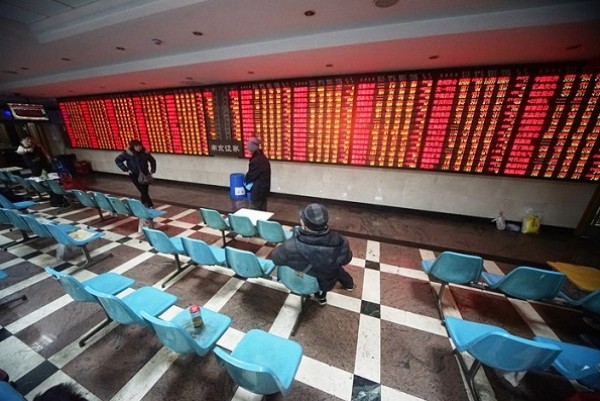| China eyes Shanghai-Frankfurt Stock Link | |

| Author: CSEBA / SEEbiz / Beltandroadnews |
| 24th November 2019 |
| BEIJING - The time might be just around the corner for German Industry giants like BMW and Mercedes-Benz to trade shares on stock markets in the Chinese mainland, as China is reportedly moving to establish a stock link mechanism between Shanghai and Frankfurt. |
|
Efforts to set up the mechanism underscore the common ground between China and many European countries in fighting US-initiated protectionism, experts said on Thursday. They also said such efforts reflect European countries’ unabated eagerness to cooperate with China, whether in finance or other areas, after seeing the potential of the huge Chinese markets. The China Europe International Exchange (CEINEX) is preparing the Shanghai-Germany Stock Connect program, according to a report in the thepaper.cn. If implemented, it will be the first stock connect program that China launches on the European continent. The stock connect program will allow Germany-based blue chips to issue Chinese Depositary Receipts (CDRs) on the Shanghai Stock Exchange, while guiding mainland-based companies, especially manufacturing enterprises, to issue Global Depositary Receipts (GDRs) on the securities market in Frankfurt. The CEINEX didn’t respond to media inquiries as of press time. Although CEINEX didn’t disclose exactly when the program will be officially launched, one expert predicted that it might be “faster than expectations” and “be rolled out in the next one or two years.” “The government’s pace of pushing financial opening-up has been very fast and even unexpected in cases such as the cancellation of Qualified Foreign Institutional Investor quota limits. The launch of the Shanghai-London Stock Connect program was faster than previous similar mechanisms. I assume it will be faster this time for the Shanghai-Germany Program,” said Zhou Yu, director of the Research Center of International Finance at the Shanghai Academy of Social Sciences. The Shanghai-London Stock Connect program was launched only about three and a half years after being announced. After implementation of the mechanism, it would be technically feasible for German conglomerates, particularly those that are household names in China like BMW, to trade their shares on the Shanghai stock market via CDR issuance. “It is possible that those companies might issue CDRs in China, given that they need money to fuel their business expansion on the Chinese mainland,” Zhou told the Global Times on Thursday. Xi Junyang, Professor at the Shanghai University of Finance and Economics, said that because Depositary Receipts issuance has significantly lower thresholds compared with direct listings, the launch of stock link programs like the one between China and Germany would make it easier for Chinese companies to trade shares on overseas bourses. “It would be particularly meaningful for Chinese companies that focus on global strategies, because listing is a very efficient way to publicise the brand,” Professor Xi said. Experts also predicted that establishment of the Shanghai-Germany stock link mechanism would only be the start of a series of financial cooperation measures between China and European countries to boost closer economic ties. “Now Europe and China share the same stance on combating US protectionism, with many European countries eager to resist the US dollar’s hegemony through external cooperation,” Zhou said. They particularly eye cooperation with China because the latter’s gigantic markets have made some of their industries, like vehicles, revive in a downward economic cycle, he noted, adding that this inclination is clear as Europe has withstood US pressure to participate in the Belt & Road Initiative and push forward 5G cooperation with Chinese companies. Such stock link programs also reflect China’s acceleration in pushing financial opening-up, expects said, as China seeks to push reforms by introducing outside competition. “China is building ‘doors’ for onshore-offshore financial interaction, even though financial inter-flows are still very limited nowadays between China and overseas markets. When market winds change in the future, China would be ready with those mechanisms in place,” Professor Xi said. |